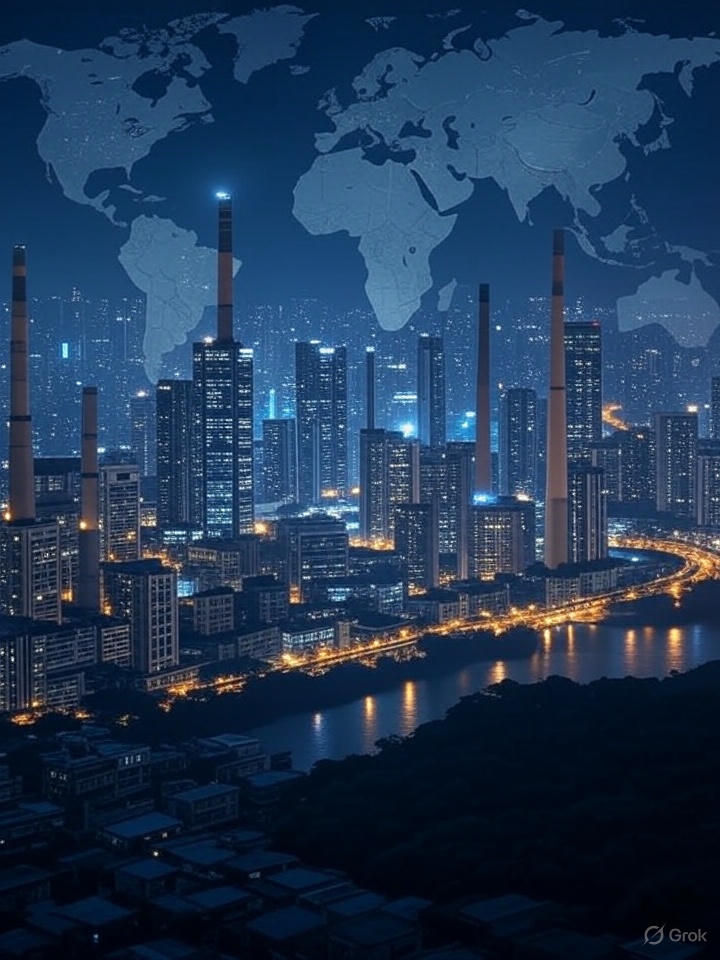The Silent Collapse of Startups Fighting for Humanity’s Future: Is There a Hidden Agenda to Keep Big Corporations in Control?
- thebrink2028
- May 25
- 6 min read

A wave of innovative startups, focused on natural products, clean water, sustainable agriculture, and climate resilience, has emerged to empower the middle-class(largest portion of consumers) with healthier, greener, and more affordable options. These ventures promise to disrupt industries by prioritizing people and the planet over profit. There is a disturbing trend unfolding: many of these startups are collapsing, often under mysterious circumstances. Employees are left jobless, customers are stranded, and dreams of a sustainable future are fading. Is this simply the harsh reality of a competitive market, or is there a calculated powerplay at work to ensure large corporations maintain their grip on prices, quality, and global resources?
A Growing Graveyard of Good Intentions
Across the globe, startups that champion natural, sustainable, and human-centric solutions are shutting down at an alarming rate. From clean water innovators to regenerative agriculture pioneers, these companies share a common mission: to make high-quality, eco-friendly products accessible to the middle class. Yet, despite early success, many are hitting insurmountable barriers.
68% of climate tech and agritech startups fail within five years, compared to 50% for tech startups overall. Funding for these sectors dropped 40% from 2021 to 2024, even as consumer demand for sustainable products soared.
A South Asian startup focused on connecting smallholder farmers directly to urban consumers. Launched with $32 million in funding, it promised to cut out middlemen, offering fresh produce at lower prices while boosting farmer incomes. By 2023, it reported a 56% revenue increase to $11.5 million. Yet, in 2025, it abruptly shut down, leaving 300 employees unpaid and customers with unrefunded balances. Insiders pointed to a critical $10 million funding round that collapsed when a major investor backed out, allegedly under pressure from large retail chains wary of the startup’s disruptive model.
This isn’t an isolated incident. From water purification to biodegradable packaging, startups that challenge entrenched industries are facing similar fates. Are these failures the result of poor business models, or is there a deeper force at play?
The Corporate Squeeze: A Pattern of Power
Large corporations in agriculture, food, water, and energy sectors rely on centralized supply chains, standardized products, and regulatory influence to maintain dominance. Startups that bypass these systems, offering organic produce, toxin-free materials, or affordable clean water, threaten their profit margins and control. The evidence suggests a multi-pronged strategy to neutralize these disruptors:
Funding Manipulation
Venture capital is critical for startups, but investors often have ties to big corporations.
45% of climate tech startups reported “investor hesitancy” due to pressure from incumbent firms. When a startup gets too disruptive, funding mysteriously evaporates, as seen in the South Asian case.
Price Undercutting
Big players can afford to slash prices temporarily to drive out competition.
60% of failed sustainable startups cited “untenable price competition” as a primary cause. For example, a U.S.-based organic food startup went bankrupt in 2023 after major retailers dropped prices on similar products, squeezing its margins.
Supply Chain Blockades
Startups rely on suppliers who are often beholden to larger clients.
70% of smallholder farmers faced pressure from large buyers to avoid working with direct-to-consumer startups.
Regulatory Barriers
Corporations leverage their influence to shape regulations that favor scale over innovation. In 2024, a major European water utility pushed for stricter compliance standards that small water purification startups couldn’t afford to meet, effectively locking them out of the market.
This isn’t just competition, it’s a deliberate effort to maintain control over essential resources. When startups make sustainable products affordable, they challenge the narrative that only expensive, premium options can be high-quality. That’s a direct threat to corporate profits.
The Human Toll of Disruption
The Clean Water Innovator
A European startup developed a low-cost, solar-powered water purification system for rural communities. By 2023, it had raised $15 million and secured government contracts. But a major utility company introduced a subsidized alternative, undercutting the startup’s prices. Unable to compete, the startup folded in 2024, and its technology was acquired by the utility for pennies on the dollar.
Big players let startups take the R&D risks, then buy them out or bury them.
The Regenerative Agriculture Pioneer
A U.S. startup focused on regenerative farming practices, like soil carbon sequestration, raised $20 million to help farmers reduce emissions while increasing yields. It partnered with 8,000 farmers and collaborated with major brands. But in 2023, it faced a sudden halt in funding, with investors citing “market uncertainties.” Insiders revealed that large agribusinesses, fearing a shift to sustainable practices, lobbied suppliers to prioritize their contracts, choking the startup’s access to resources. By 2024, it was bankrupt.
The Biodegradable Packaging Trailblazer
A North American startup created plant-based packaging to replace plastic in food delivery. It gained traction with small restaurants and raised $8 million. But in 2024, a major packaging corporation launched a similar “green” product at 30% lower prices, backed by economies of scale. The startup couldn’t compete and folded, with whispers of patent disputes and supply chain blockades orchestrated by the larger firm.
The patterns are hard to ignore: startups that threaten corporate monopolies face systemic barriers.
But could there be a broader agenda? Some experts believe this goes beyond profit protection.
It’s about control over the narrative.
If startups prove that sustainable, affordable products can scale, it undermines the justification for high prices and low-quality standards. It also empowers consumers to demand better.
Consider the stakes:
Food Security
Large agribusinesses control 70% of global food production, prioritizing monoculture crops that deplete soil and rely on chemical inputs. Startups promoting regenerative practices threaten this model.
Water Access
The global water treatment market is dominated by a handful of giants, with $300 billion in revenue. Affordable purification startups could democratize access, reducing dependency on bottled water.
Climate Resilience
Corporations benefit from a status quo where climate solutions are expensive and exclusive. Startups offering scalable, low-cost innovations challenge this dynamic.
A Vertical farming co raised $400M, but now it’s burning cash and pivoting. Big players don’t want small farms winning. While inconclusive, this reflects growing suspicion of corporate interference.
The Human Cost: Who Suffers?
The middle class pays the price. When a clean water startup fails, families lose access to affordable, safe drinking water. When a regenerative agriculture company collapses, farmers revert to unsustainable practices, and consumers face higher prices for organic goods. Employees and small-scale suppliers, like the delivery partners in the South Asian case who begged for unpaid wages, face financial ruin.
62% of middle-class households felt “less trust” in supply chains after startup failures.
The signs are unmistakable:
Funding Decline: Global venture capital for climate tech dropped from $22 billion in 2021 to $13 billion in 2024, despite rising consumer demand.
Corporate Consolidation: In 2023-24, 25% of failed sustainable startups were acquired by larger firms, repurposing their tech for profit-driven models.
Regulatory Tightening: Governments, influenced by corporate lobbying, are imposing stricter standards that favor scale over innovation.
Consumer Frustration: Social media is rife with complaints about unfulfilled promises, from unrefunded balances to abandoned eco-friendly products.
A Fight for Control
If this trend persists, large corporations could tighten their grip on essential resources, limiting consumer choice and prioritizing profits over sustainability. The middle class will face higher prices and lower-quality options, while environmental progress stalls.
What if the middle class became co-owners of sustainable startups?
A platform where consumers invest in local water purification or regenerative farms, creating a network immune to corporate sabotage. Or AI-driven supply chains that allow startups to outmaneuver giants by optimizing logistics in real-time. A 2024 pilot showed a 20% cost reduction using such tech.
What if governments treated sustainable startups as critical infrastructure? Tax breaks or grants could level the playing field, as seen in regions where agritech startups had a 50% higher survival rate with government support.
The Brink of Revolution
The collapse of startups fighting for humanity’s future is a battle for control over our food, water, and planet. The evidence points to a deliberate effort to protect corporate dominance. By embracing decentralized models, leveraging technology, and demanding policy change, we can empower the middle class and build a sustainable future. At TheBrink2028, we’re committed to exposing these truths and sparking action. Will you join us in challenging the agenda?
-Chetan Desai (chedesai@gmail.com)


